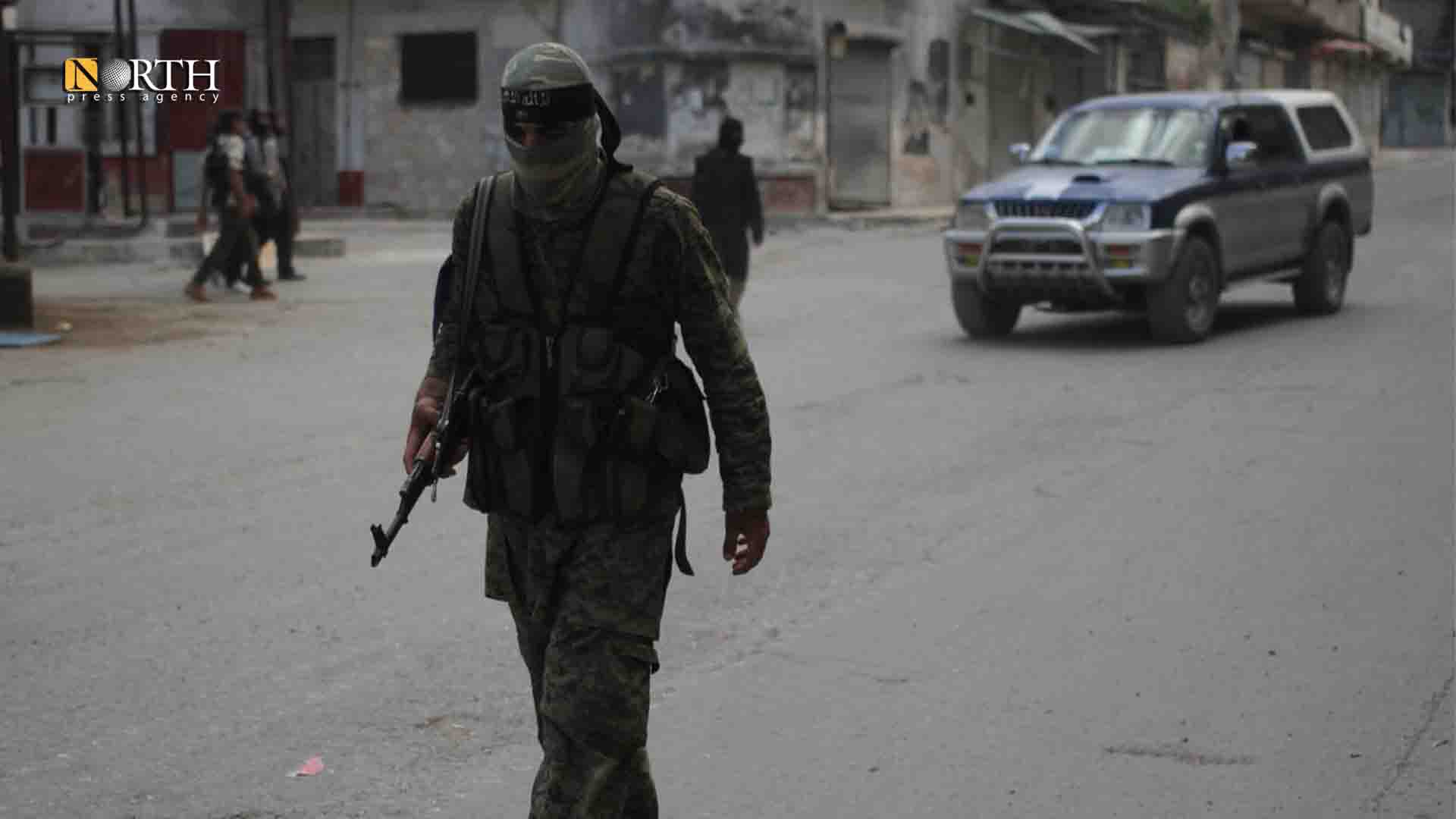IDLIB, Syria (North Press) – Fear of being alone worried the 30-year-old Hiyam, leading her to marry Abu Alaa Masry, a fighter in Hayat Tahrir Sham (HTS, formerly al-Nusra Front), whom she knew only by his surname.
Hiyam, who refused to reveal her full name, is only one of hundreds of Syrian women who married foreign fighters.
During the war years, it became common for Syrian women to marry foreign fighters who, since 2013, had participated in the fighting alongside the opposition groups.
Those militants used fake names for security reasons, in addition to leaving their wives and families, either because they returned to their country or because they moved with their organizations to new fronts without their wives and children.
As a result, wives remain alone with their children of unknown parentage and without any breadwinners, facing life’s difficulties to secure a living.
Hiyam, from the town of Dana in the northern countryside of Idlib, told North Press that she moved to live with her older brother’s family after the death of her mother. “I was suffering from bullying and mistreatment by my brother’s wife,” she explained.
“Fear of aging pushed me to marry one of my brother’s friends in the faction,” she added.
“After seven months of my marriage my husband was killed in a battle against government forces in Latakia countryside, so I returned to my brother’s house again, to face the cruel society and cultural norms after I became a widow,” she said.
Owing to poverty and other factors, some families were forced to marry off their daughters to fighters, as in the case of Alia, who was displaced with her family from Ma’arat Nu’man to the camps of Sarmada, which borders Turkey.
17-year-old Alia Buraq, who left school due to poverty and insecurity, was married to a Moroccan fighter called Baraa by her father.
Only one year into the marriage, her husband moved to a second front and promised that he would return, but he never came back.
“I didn’t hear from him again, and there were many stories, from his death to his return to his country,” Buraq said.
Like other women who married foreign fighters, Buraq faces a problem in registering her son, as the legal courts demand a document showing the father’s identity, nationality, and religion to confirm the marriage and register the child.
However, Buraq was unable to secure the parentage documents, leaving her child awaiting an unknown future.
“All I wish for now is to obtain identification papers for my child to get his right of education and health care,” Buraq said, adding, “I do not know my husband’s real name, as he used a fake name even on our marriage contract, based on a forged ID.”
Fear of the military factions forces many fathers to accept the marriage of their daughters to foreign fighters.
The failure of most marriages to foreign fighters prompted Syrian activists to launch an awareness campaign in northern Syria, called “Who is your husband?”
The campaign aimed, according to its organizers, to “urge girls and widows to reject this kind of marriage, as it causes multiple problems for women and their children.”
The campaign was launched in 2018, through working teams distributed over the villages and towns of Idlib.
The campaign also issued statistics that monitored the number of Syrian women married to foreign fighters in Idlib Governorate.
Activists were able to register 1,735 marriages since 2013, while 1,124 women who were involved in those marriages gave birth to 1,826 children.
The statistic also shows that 193 of the women divorced or became widows, and there are 165 cases in which the husband disappeared and his fate is still unknown.

